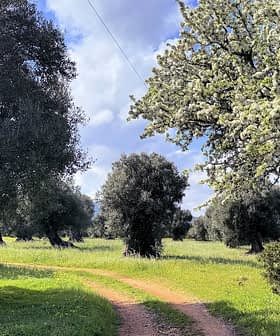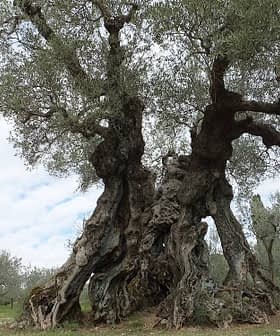Italian Carabinieri uncovered a widespread olive oil counterfeiting network in Cerignola, Puglia, marking one of the most extensive operations of this kind in recent years.
The Carabinieri’s Anti-adulteration and Health Unit (NAS) operatives executed search warrants against seven local people and discovered 71 tons of oily substances, 623 liters of chlorophyll, and equipment to produce large quantities of olive oil-like products illegally.
The police operation was coordinated by the Public Prosecutor’s Office of Foggia and involved several provinces across the country.
See Also:Discovery of Adulterated Olive Oil Kindles Debate Over Testing in Northern CyprusThe investigation began last September and recently enabled NAS to identify and seize nearly 42 tons of adulterated oil.
A large portion of this substance was ready for market distribution. It was sometimes already bottled and made available to the agri-food supply chain, falsely labeled as Italian extra virgin olive oil.
Over the years, the scourge of olive oil counterfeiting has triggered a growing volume of scientific research investigating how counterfeiting occurs and methods to detect adulterated products.
Counterfeiters sometimes add chlorophyll and beta-carotene to seed oils to mimic the color of extra virgin olive oil.
A superficial analysis of these counterfeit products might not detect fraud, as low-quality olive oils are often added to the mixture.
As a result, law enforcement agencies deploy highly sophisticated methods, including spectroscopy, chromatography and even DNA testing.
According to Gennaro Sicolo, president of Italia Olivicola, the NAS investigation underscores the ability of Italian law enforcement agencies to combat food crimes efficiently.
“The Carabinieri operation against fake extra virgin olive oil and oil colored with chlorophyll is a shining example of the excellent functioning of the control system against food fraud,” he said.
Sicolo stressed the importance of such operations given the high value of Apulian olive oil production.
With its 60 million olive trees and numerous award-winning olive oil producers, Puglia is Italy’s most significant producing region, accounting for approximately half of the national production.
According to Sicolo, the challenge is to raise consumer awareness about the quality and health benefits of high-quality extra virgin olive oil so that cheaper oils with fewer health guarantees are less favored.
The Italian Association of the Edible Oil Industry (Assitol) warned that “the real issue is the reputational damage to the vast majority of companies that operate correctly.”
Anna Cane, president of Assitol’s olive oil group, noted that “ours is one of the most monitored sectors, primarily thanks to SIAN, the national telematic system that monitors the flow of oil entering and leaving Italy.”
“Additionally, eight different public control bodies oversee the oils marketed on the shelves,” she added.
According to Assitol, one of the reasons fraud persists is low consumer awareness surrounding extra virgin olive oil.
“The fact that under-the-counter dealers like those discovered in Cerignola still find buyers in the market shows how little value is attributed to this extraordinary product,” Cane said. “This is yet another reason to promote its knowledge in Italy and worldwide and to support its protection in every possible way.”
Following the seizure of the counterfeit oils, both the CIA and Coldiretti, a farmers’ association, emphasized the importance of certified olive oil production as a safe harbor for consumers.
They referred to the European Union-sanctioned Protected Designation of Origin (PDO) and Protected Geographical Indication (PGI) certifications, which link traditionally produced food and drinks to specific regions and cultivars.
“I continue to appeal to consumers: buy PDO and PGI extra virgin olive oil. To obtain these recognitions, PDO and PGI extra virgin olive oils must adhere to precise and rigorous rules that attest to their high quality and healthiness,” Sicolo said.
Alfonso Cavallo, president of Coldiretti Puglia, said law enforcement is crucial to protecting consumer health.
“Food fraud is a particularly hateful crime because it endangers people’s health, it is based on deception and primarily affects those with limited financial means who are forced to resort to low-cost food,” he said.
This is not the first time Italian law enforcement has uncovered significant illegal operations focusing on olive oil counterfeiting. In December, authorities in Italy and Spain seized 260,000 liters of adulterated olive oil and arrested 11 individuals in coordinated raids.
However, experts have warned that the combination of low production in the past two crop years, dwindling olive oil stocks and high prices have created enticing conditions for criminal organizations to commit olive oil fraud.








